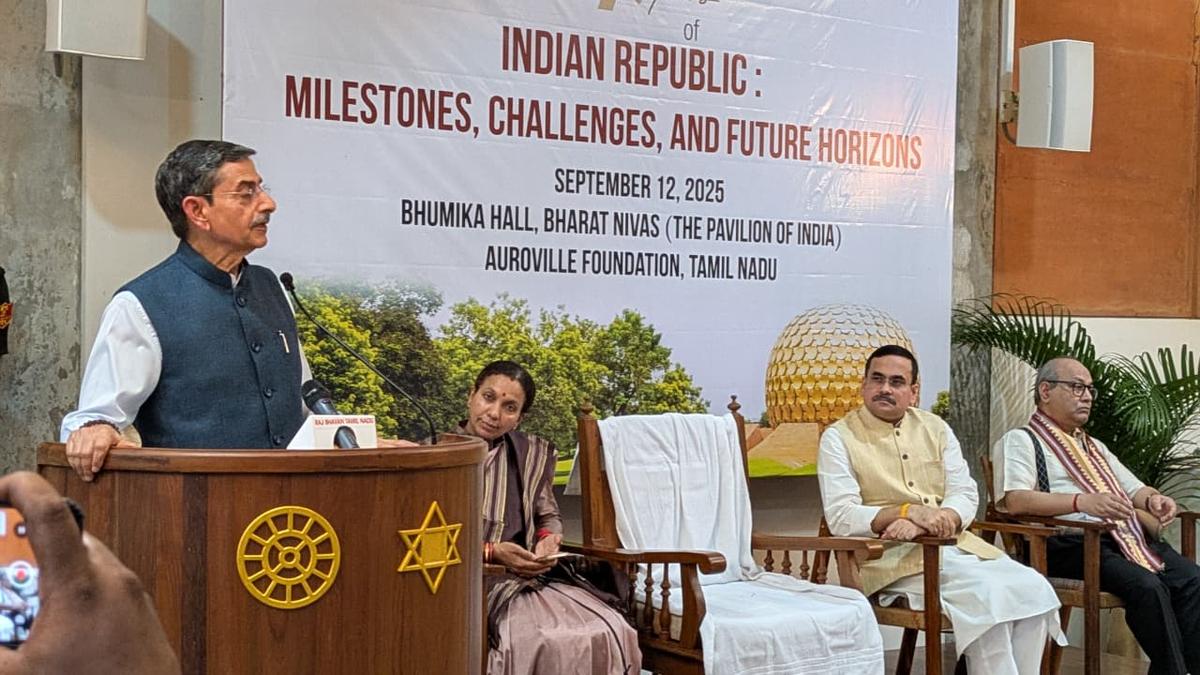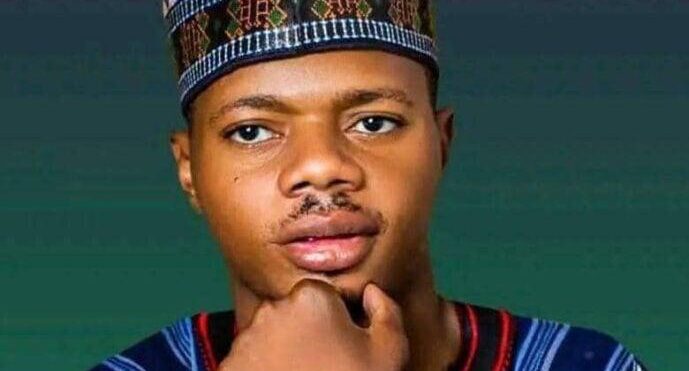No pre-2014 civil war like situation in India, trouble-torn regions on path to progress, says T.N. Governor Ravi
By The Hindu Bureau
Copyright thehindu

Tamil Nadu Governor and chairman of Auroville Foundation R.N. Ravi on Friday (September 12, 2025) said that in contrast to the decades following the birth of the Republic when half the country was facing a civil war like situation, things have perceptibly changed since 2014.
Addressing a national seminar on “75 years of the Indian Republlic: Milestones, Challenges and Future Horizons” at the Bharat Nivas in Auroville, Mr. Ravi said after the formation of the Republic and up until 2014, the Northeast and Jammu and Kashmir regions were riven by strife, gun-toting Maoists having a free run in an estimated 200 districts and terrorists could strike at will anywhere. About 5,000 to 6,000 Indian citizens, including a number of security personnel, died every year, he said.
However, post-2014, trouble-torn Northeast and Jammu and Kashmir remained by and large peaceful and were rapidly developing in terms of local economy, infrastructure and tourism. Maoists had shrunk to less than dozen outfits and their days were numbered, and the country remained free of terrorism by and large, he said.
“When it comes to the country’s unity and integrity, systematically, we kept losing (land) and ignoring the losses,” Mr. Ravi said.
Drawing a contrast to India’s response to the Pahalgam terror attack, Mr. Ravi accused the past political leadership of the Republic of being weak and lacking courage. He cited the situation in the aftermath of the first Indo-Pak war (1947-48) when those at the helm of affairs chose to approach a third party pleading for mediation. As a consequence, the territory that was an integral part of Bharat became a disputed place, and the United Nation’s military observer group was stationed in Srinagar until 2014. Also, China, then not as strong as it is now, had also grabbed 30,000 sq. km. and in the 1970s, Katchatheevu Island, a primary livelihood source for fishermen was given away to Sri Lanka, Mr. Ravi said.
According to the Auroville chairman, what was once the wealthiest land, prior to colonialisation, and an India that was the world’s sixth largest economy at the time of Independence, had slipped to the 11th place by 2014. An estimated 30% of the people were living in abject poverty. After 2014, when Narendra Modi took over as Prime Minister, the lowering of poverty to 4% in just about a decade and bringing weaker sections under universal healthcare cover were two among many metrics to make an assessment of the 75 years of the Republic against the touchstones of the Constitutionally enshrined goals of social, political and economic justice to all citizens, he said.
Mr. Ravi said while for over centuries people had coexisted without discord over region, language or ethnicity, those who managed the Republic overfocused on the concept of the nation-State and ignored the ethos of “rashtra”, thereby putting a diverse society at conflict with the Republic.
“The spirit of the rashtra has to permeate other pillars of the Republic. Our judiciary has been interpreting the Constitution largely from the Western perspective and not Bharatiya jurisprudence. Unfortunately this jurisprudential ethos, the concept of rashtra, has not been taught in law schools or universities or judicial academies. As a result, there is a huge deficiency of “rashtra bodh” in our legal fraternity”, Mr. Ravi said.
Noting the appropriateness of holding such an event in Auroville, which was an example of the home of the world inspired by Sri Aurobindo and exemplified the concept of ‘Vasudhaiva Kutumbakam’, the foundational philosophy of Bharat, Mr. Ravi said, “The future of the Republic will be determined by the course we have chosen now… we must continue to look at Bharat as a family, a rashtra”.
Arindam Mukherjee, Director of Institute of Social and Cultural Studies (ISCS), Sarup Prasad Ghosh, Director, Maulana Abul Kalam Azad Institute of Asian Studies, Jayanti Ravi, Secretary, Auroville Foundation, Anirban Ganguly, chairman, Dr. Syama Prasad Mookerjee Research Foundation and Biswajit Ganguli, trustee, Sri Aurobindo Bhavan, Kolkata also spoke.
The event was hosted by Ministry of Culture, Auroville Foundation, ISCS, Sri Aurobindo Centre for Advanced Research and the Sri Aurobindo Bhavan, Kolkata.



